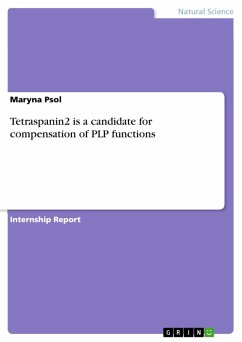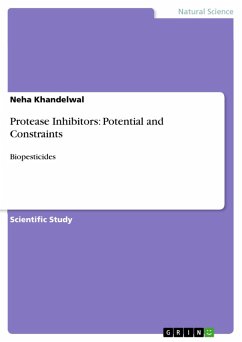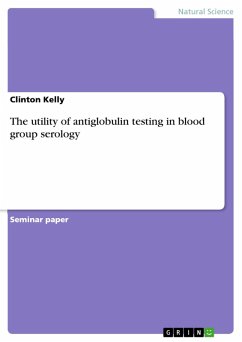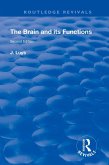Internship Report from the year 2012 in the subject Biology - Neurobiology, grade: 1,3, University of Göttingen (Max Plank Institute for Experimental Medicine / Department of Neurogenetics), language: English, abstract: Tetraspanin2 (Tspan2) is a member of the tetraspan/transmembrane4 superfamily restricted to the nervous system. The abundance of Tspan2 is low in physiological condition but increases greatly in myelin of PLP-deficient mice which may indicate its' compensatory functions. Our experiments show that Tspan2 has no effect on delay of myelination at P14; young and old mice lacking Tspan2 has the same g-ratio as wild type. However, the quantity of unhealthy axons and axonal swellings are higher in aged animals lacking both PLP and Tspan2 than in single PLP knockout. Furthermore,the absence of PLP causes the decrease in the number of axons and rise in axon diameter; lack of Tspan2 alone leads to decrease in quantity of 0.4-0.7 µm diameter axons in 40 weeks old mice. These findings point to a possible auxiliary role of Tspan2 in support of axonal transport and long-term axon preservation in PLP null condition.
Dieser Download kann aus rechtlichen Gründen nur mit Rechnungsadresse in A, B, BG, CY, CZ, D, DK, EW, E, FIN, F, GR, HR, H, IRL, I, LT, L, LR, M, NL, PL, P, R, S, SLO, SK ausgeliefert werden.
Hinweis: Dieser Artikel kann nur an eine deutsche Lieferadresse ausgeliefert werden.









